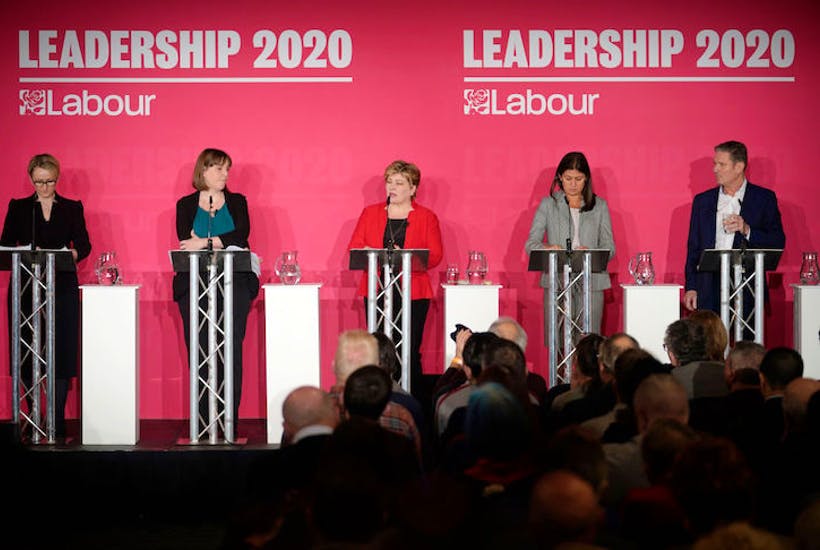The first hustings of the Labour leadership campaign was not particularly inspiring. It did not suggest that any of the candidates either believed their party would win the next election or that they were capable of telling the membership what it really needs to hear in order to get as close as possible to winning.
One of the problems was the format: candidates had 40 seconds to answer each question and couldn’t interrupt one another or take one another up on points they had made. It meant everyone could make their point properly, which was useful, but it also took a lot of the energy out of the session, and the leadership hopefuls struggled to inject their own passion.
All of them agreed on things that would make the members listening happy: we need to unite the party, anti-Semitism is bad and needs to be stamped out, the 2019 manifesto had lots of good things in it, and the party’s Brexit policy hadn’t worked. They all made statements of the obvious about many traditional Labour voters deserting the party.
There were differences in pitch, obviously. Rebecca Long-Bailey was very keen on the importance of aspiration, telling the audience they should settle for nothing less than a ‘socialist aspirational democratic economy’. All the candidates acknowledged that the media was hostile to their party, which went down particularly well with the Liverpool audience, but Keir Starmer went the furthest, saying he wouldn’t be giving any interviews to the Sun during this campaign. Jess Phillips tried to suggest that the other candidates hadn’t been as involved as she had been in the fight for a better process to tackle anti-Semitism, saying ‘I have to say I don’t remember some of the people here being in that particular room’ – which Thornberry and Starmer objected to rather politely when they gave their answers. Phillips also tried to undermine Thornberry’s claim that she was the best person to beat Boris Johnson because she had gone ‘toe-to-toe with him’ for two years and ‘frankly he didn’t like it’: the Birmingham Yardley MP pointed out rather sourly that none of the techniques used against Johnson so far had actually worked.
But of all the candidates, Thornberry probably put in the most energised performance, followed by Phillips whose answers sounded, at times, quite emotional. Starmer was the safe candidate, and his final address to the hustings so safe that it was hard to imagine people joining the party in excitement at the direction it was taking under his leadership. Mind you, after that hustings, it was hard to imagine this of any of the candidates, really. And perhaps given the event was held in a Labour stronghold rather than a part of the country where the party was struggling, no-one really felt the need to show how good they’d be at energising people currently feeling estranged from the Labour Party. They all played it safe, flattering the membership rather than challenging it. This suggests they don’t think the party is yet ready to really face up to how much it needs to change in order to win. It certainly suggests we’re in for a contest that’s going to feel very safe – and very long.







Comments